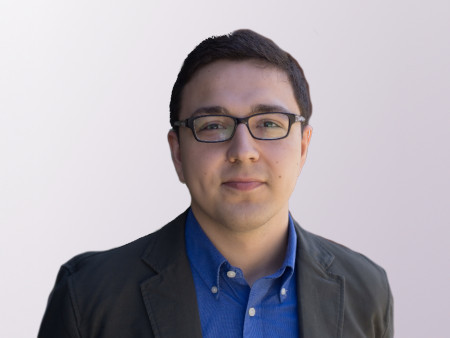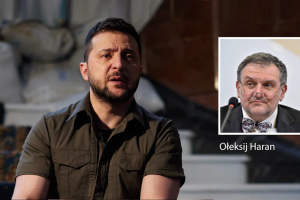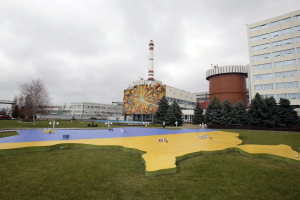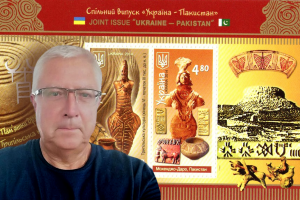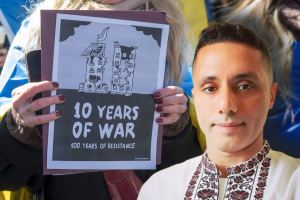Dugin vs. Surkov – Looking for the Russian Political Discourse
For those who wondered, the great political debates in Russia do exist. The Russian retreat from Kherson contributes to the tension still simmering after Russia’s announcement of mobilization – how will the Kremlin handle this?
As a reaction to the Ukraine victory in Kherson, Russia’s neo-fascist philosopher Dugin recently wrote an amusing piece: beyond the commonplace the West is Satan narrative, his argument boils down to the need for a genuine Russian ideology. The article almost overtly criticizes Putin, the Ruler, and claims that the war Russia started against Ukraine can only be won if it becomes the people’s war, not unlike WWII did for the USSR.
There is an opposing view on the matter. Enter Surkov, Russia’s former First Deputy Chief of the Russian Presidential Administration and post-2014 Donbas curator. His views on pre-war Russia are opposite to Dugin’s; he writes about the deep people:
“… the elite, century after century… involves the people in some of its measures [i.e., acts] – party gatherings, wars, elections, economic experiments. The people do take part in these measures, but in a somewhat detached manner… living in their own depth a completely different life.”
Dugin and Surkov come from the two different Russian worlds. The former is an old man with somewhat philosophical and ideologically idealistic beliefs. Although sometimes the media refers to him as Putin’s brain and he has influence in certain circles, his very nature is to remain a fringe, a sort of independent intellectual. Surkov, on the other hand, used to be an insider of the political system: after all, he had been at Kremlin for about 20 years before leaving in 2020. He tried to arrange and manage the Russian political system by deliberately engineering social movements, such as Nashi or the Union of Donbass Volunteers. His spin doctor background led him to believe that he could control the political discourse by forging cooperation between political influencers and the government.
If Dugin was the fundamentalist fringe, Surkov raised the laboratory fringe. In his piece, Dugin derides political technologies, a Russian way of calling political spin that Surkov was involved in, and argues that history itself is the key to the new Russian ideology. If anything, Surkov used to treat Dugin as a competitor for political ideas and funding; Surkov also likely saw Dugin as impractical and feverish. This is just to illustrate that the conflict between these two characters takes place in multiple dimensions.
Fundamentally, however, the disagreement is about the nature of Russian society and how it relates to the war. For Surkov, the premise is that it is possible to manage the political system precisely because most people are disinterested by nature and for the few who are interested there should be a diverse government-affiliated offering. He believes that it is about maintaining a certain normality and control, which accords with Putin’s messaging during the war prior to the announcement of mobilization. For Dugin, the premise is the need for ideology, a somewhat overt Russian fascism that he calls the Russian Idea. It is a loose concept, but Dugin argues that ideology can energize the people and the war effort to help Russia win. So far, Putin’s regime has contributed to ideology by holding several rallies, changing the school curriculum, and creating war symbols, such as the famed “Z”, but Dugin would likely say that these half-measures are fake.
Arguably, Surkov seems to have the upper hand so far. There is no single piece of evidence or data that can settle this debate, but there are a couple of ways to gauge who is winning. Media monitoring of Russian sources reveals that the involvement of citizens in the war effort via mobilization has resulted in complaints about the mobilization procedure, dissatisfaction with conditions, and attempts to avoid mobilization. No popular support there. Another measure of popular involvement in the war, crowdfunding for the needs of Russian troops by ordinary citizens, has not been particularly strong. Finally, the very need to announce mobilization was a result of the Kremlin’s incapability to recruit a sufficient number of volunteers, something that it tried and failed to do during the summer of 2022.
Similarly, for Western academia, this is a closed case – it is generally accepted that autocracies, such as pre-war Russia rely on the non-engagement of citizens, rather than active participation. This does not mean that Putin’s course has no support – rather, this support seems to be passive by nature and conditional upon the Putin regime not finicking with the lives of the deep people.
Whether Putin operates in these terms is unknown, but, so far, he has not fully committed to the ideology Dugin has in mind. Still, the Surkovian position has everything to lose. In other words, this debate continues to be relevant in Russia.

